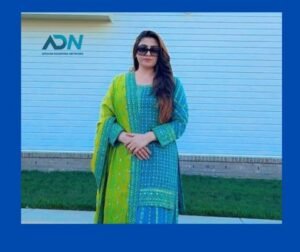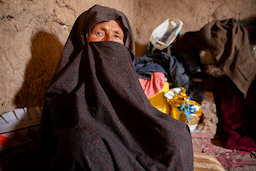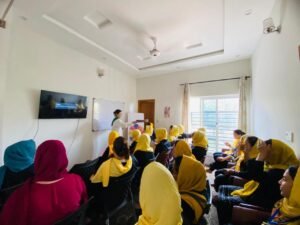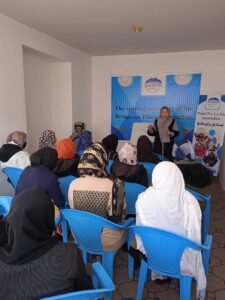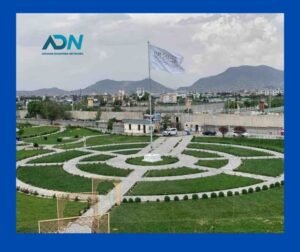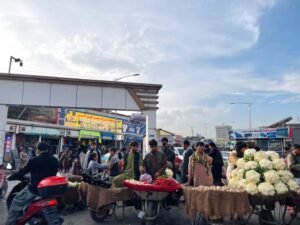Empowering Afghan Women: Advocacy Amidst Challenges

Photo captured by @AADIL for ADN
Although active in engagement in discussions concerning Afghan women’s causes, a lack of a cohesive message to the world is still evident in Afghan women’s advocacy.
By Nazila Jamshidi
March, recognized as Women’s Month, has seen Afghan women actively engaging in various discussions concerning Afghanistan’s future trajectory on the global stage. Their participation has been notable, spanning from the 68th annual Commission on the Status of Women (CSW68) in New York City—an event regarded as the UN’s largest annual gathering on gender equality and women’s empowerment—to the Alliance for Afghan Women’s Economic Resilience at the US State Department, along with numerous smaller gatherings addressing the challenges faced by Afghan women.
In addition to these gatherings, several dialogues, meetings, and campaigns are scheduled to take place this month, focusing on potential solutions to address the ongoing struggles faced by Afghan women. This urgency is underscored by the unfortunate reality that at least three women’s rights activists are currently imprisoned by the Taliban, with no access to a fair justice system. Furthermore, women continue to encounter numerous obstacles, including the closure of schools and universities, restrictions on female doctors taking residency exams, and arbitrary arrests by the Taliban’s moral police for perceived violations of dress codes.
Throughout March, women have continued to advocate for their rights and those of their fellow Afghan women on international platforms. However, amidst these efforts, there remains a pressing need for unified messaging. Despite the critical importance of their engagement, the lack of a cohesive message to the world is evident.
Afghan Women’s Diverse Advocacy Perspectives
During the 68th annual Commission on the Status of Women, a pivotal gathering where governments, civil society organizations, experts, and activists from around the globe convened to devise strategies to eradicate women’s poverty and advance gender equality, Afghan women presented a multifaceted perspective, offering both requests and suggestions to address the pressing issues facing their nation. For instance, former MP Fawzia Koofi, in her address to members of the CSW and during a press briefing at a UN meeting, urged countries in the region, particularly Muslim-majority nations, to take decisive action against the education ban imposed on women and girls in Afghanistan. She appealed to these nations not to appease the Taliban while they continue to systematically eliminate women from society.
In contrast, Fatima Gailani, an Afghan political leader and women’s rights activist, advocated for diplomatic engagement with the Taliban. Gailani, who previously served as president of the Afghan Red Crescent Society and was recognized as one of the BBC’s 100 Women of 2021, highlighted the need for diplomatic engagement with the Taliban, the most oppressive group to women and their rights in the world, to address the complex situation in Afghanistan.
Both Gailani and Koofi possess extensive experience in Afghan politics and a deep understanding of the country’s context, having served as leaders during the ‘democracy’ era. They have made significant contributions to advancing women’s rights and believe strongly in the inclusion of women in all discussions and decisions. While both women acknowledge the significant challenges faced by Afghan women, sadly, their approaches oppose one another—one advocating for diplomatic pressure and the other for diplomatic engagement with the Taliban.
Unifying Afghan Women’s Advocacy
In Afghanistan, girls are entering their third year of being denied access to education—a loss of three precious years that can never be regained. Meanwhile, women outside Afghanistan have yet to present a unified demand or message to world leaders. While the reasons behind advocating for diplomatic engagement versus diplomatic pressure are complex and beyond the scope of this discussion, the divergence in approaches highlights a lack of unity among women’s voices, which is detrimental to the cause of Afghan women. Collective advocacy is far more impactful than fragmented voices, yet this lack of unity among Afghan women is not unprecedented. It is not the first time that differing approaches have been taken to influence global policies regarding the Taliban.
As women struggle to unify their advocacy efforts, the Taliban continue to issue orders and decrees aimed at further marginalizing them from society. In February 2024 alone, Taliban leadership at various levels issued seven directives targeting women’s rights. For instance, on February 22, the Taliban in Kandahar issued orders instructing school principals to bar girls aged 10 and above from attending classes below the sixth grade. Additionally, the directive mandated that girls in grades four to six must wear face coverings during their journey to school. Just days later, on February 25, the Taliban police chief in Khost, Abdul Rashid Omari, banned women from contacting local radio and television channels, citing concerns about the potential spread of immorality.
Afghan women’s most potent tools are their voices and advocacy power on the world stage, yet these resources must be tackled in more collective, unified, and effective ways. In light of insufficient resistance within Afghanistan and a lack of adequate support from men standing with women, advocacy outside the country becomes vital for Afghan women. However, presenting fragmented voices to the world stage will only weaken advocacy efforts and fail to address the plight of women. The sooner Afghan women unite their voices and present a cohesive front, the closer they get to securing the rights they deserve.
Nazila Jamshidi – a gender equality and human rights specialist involved in Afghanistan’s development and democracy processes for the past decade – has worked for the UN, USAID, the International Federation of Red Cross.
Note: The contents of the article are of sole responsibility of the author. Afghan Diaspora Network will not be responsible for any inaccurate or incorrect statement in the articles.

